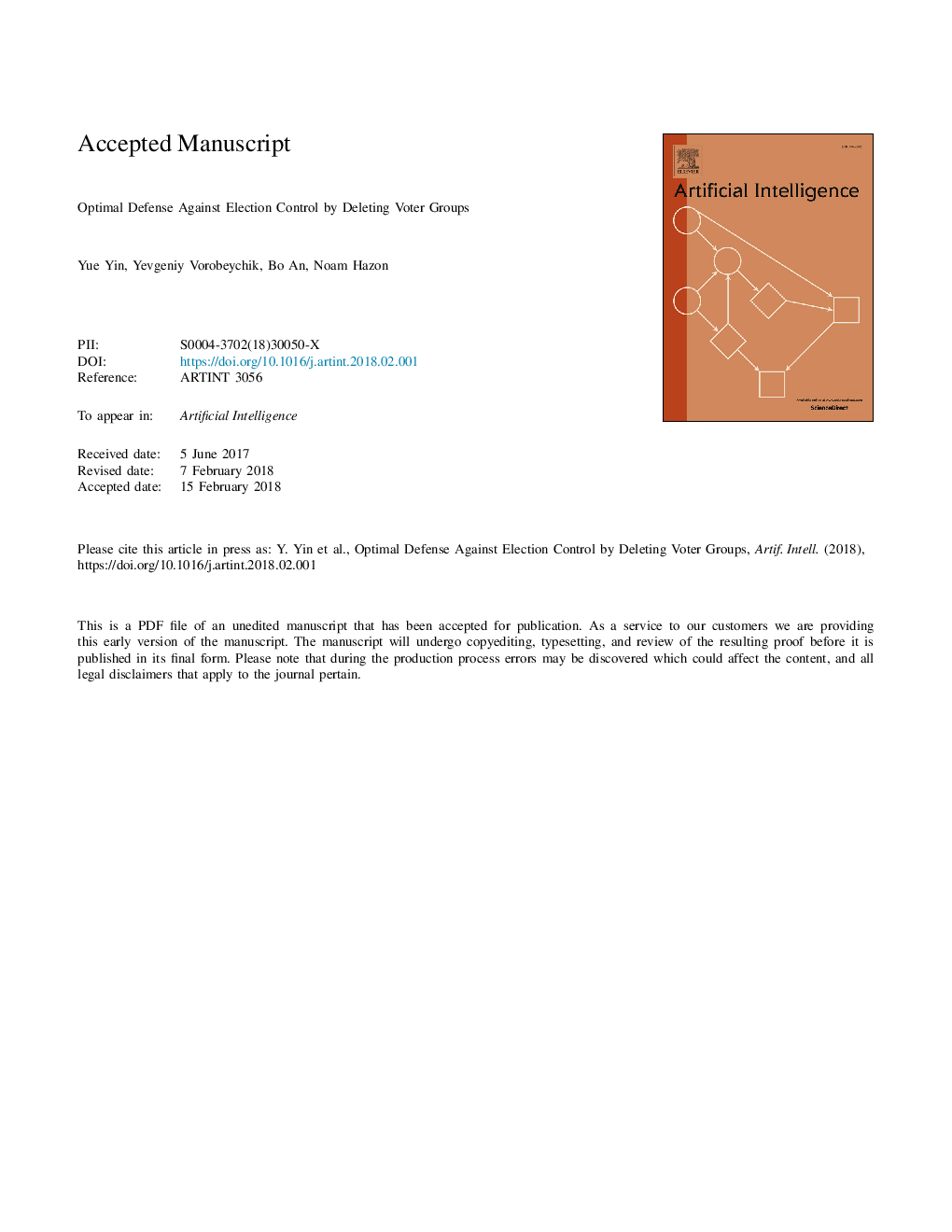ترجمه فارسی عنوان مقاله
دفاع مطلق در برابر کنترل انتخابات با حذف گروه های رای دهنده
عنوان انگلیسی
Optimal defense against election control by deleting voter groups
| کد مقاله | سال انتشار | تعداد صفحات مقاله انگلیسی |
|---|---|---|
| 138047 | 2018 | 44 صفحه PDF |
منبع

Publisher : Elsevier - Science Direct (الزویر - ساینس دایرکت)
Journal : Artificial Intelligence, Volume 259, June 2018, Pages 32-51
ترجمه کلمات کلیدی
کنترل انتخابات، حفاظت از انتخابات، بازی های امنیتی
کلمات کلیدی انگلیسی
Election control; Protecting elections; Security games;

